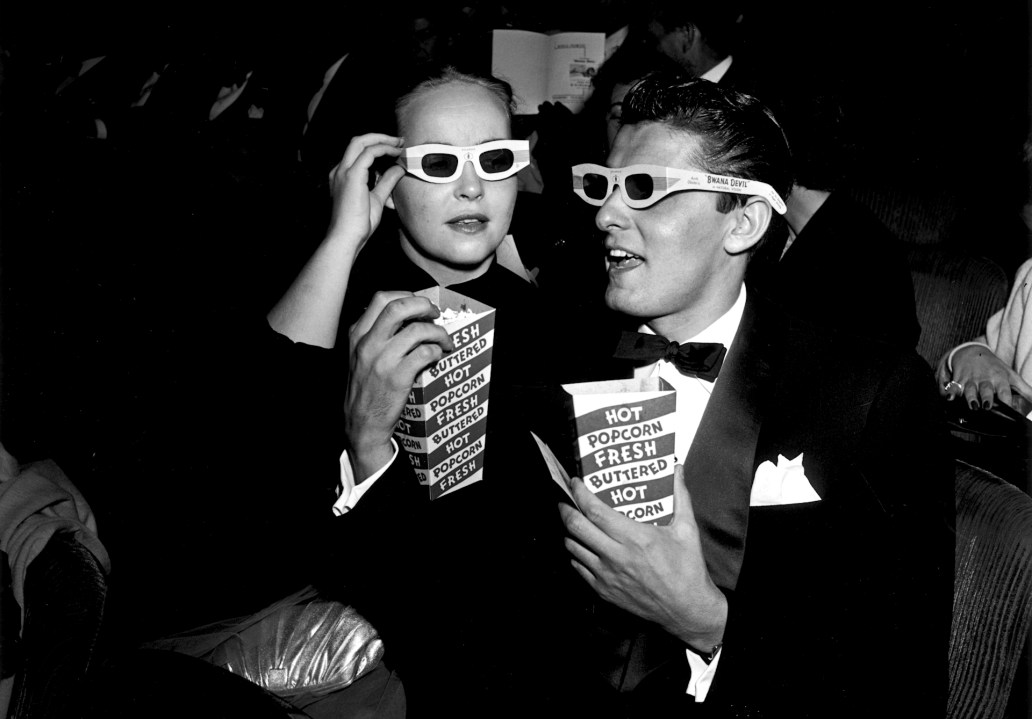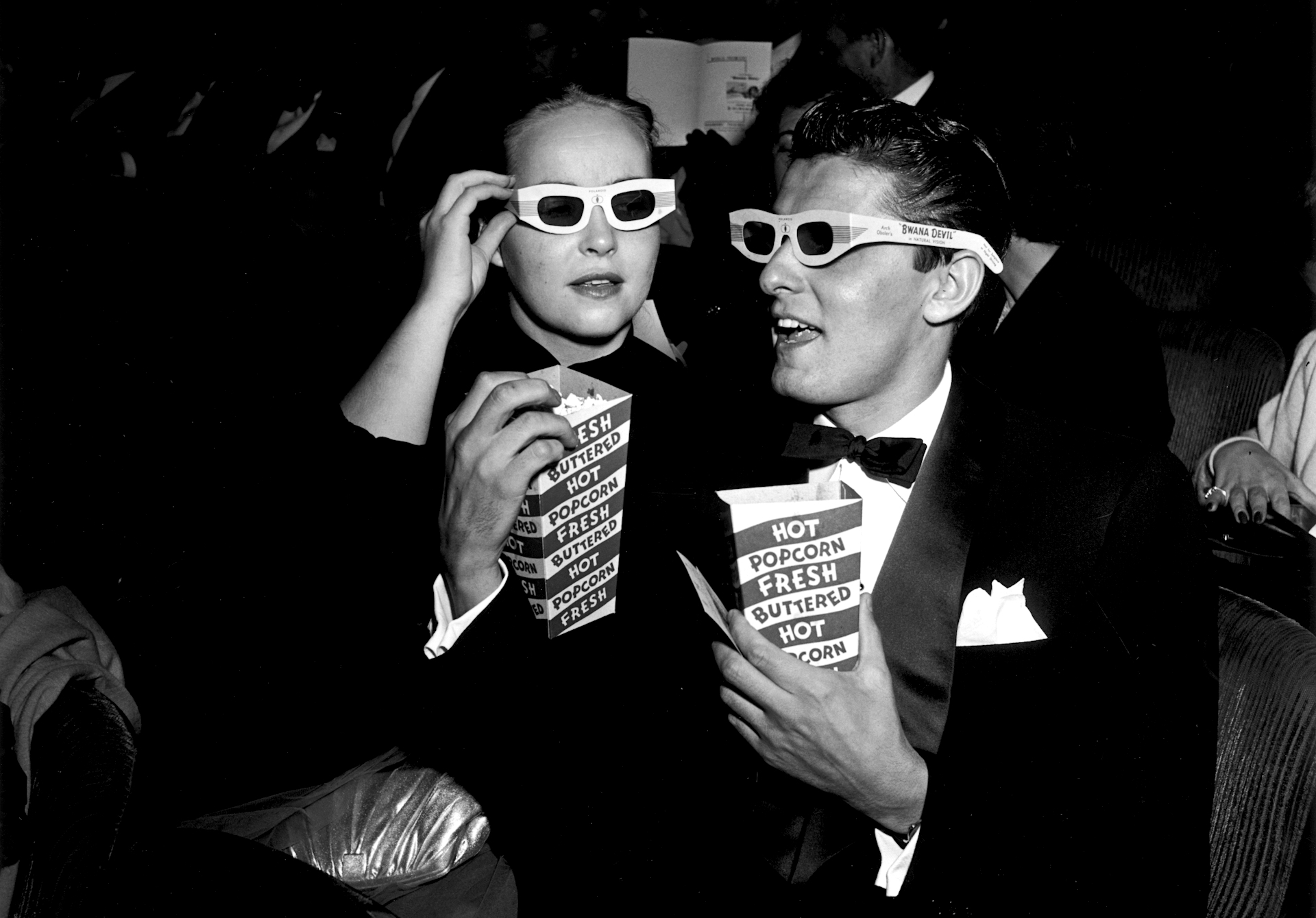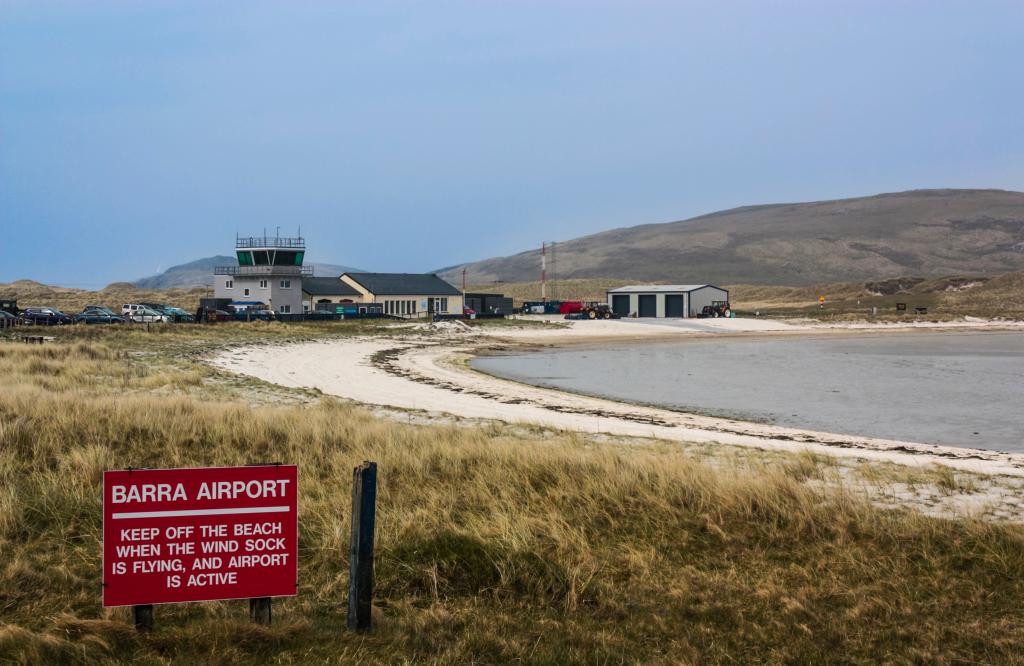Observers of the American film industry have been fretting about its prospects for almost as long as it has existed. They questioned its viability in the wake of television, bemoaned the impact of the studio system on creative freedom, lamented the rise of the blockbuster, wondered where the blockbuster had gone, and pronounced that streaming and Covid would kill off moviegoing. Now Donald Trump has designated the decline of Hollywood ‘a national security threat’. A presidential proclamation on the future of movies. The best Pauline Kael could ever do was 5,000 words in the New Yorker.
Industry insiders are bemused by this abrupt show of solidarity from a political party that usually pronounces Hollywood to rhyme with ‘Sodom and Gomorrah’. But today’s Republican party is the Trump party in all but name and the 47th president is a baby boomer to the very fingertips of his tiny little hands: pop culture is everything. The Hollywood Reporter has outlined an entirely feasible theory that Trump’s sudden decision to reopen Alcatraz was inspired by an airing of Escape from Alcatraz (Don Siegel, 1979) on the local television station in Mar-a-Lago last weekend. In pledging 100 per cent tariffs on overseas productions, Trump isn’t coming to Hollywood’s defence – such tariffs would hurt rather than help American moviemakers – but engaging in constitutionally dubious nostalgia for the movies of his youth and what he imagines were the circumstances of their production. Nostalgia is normal, but it usually involves sharing cringe memes on Facebook, rather than radically expanding Article II national security powers.
The president’s rationale for imposing a 100 per cent tariff ‘on any and all movies coming into our country that are produced in foreign lands’ is that ‘we want movies made in America again’. He isn’t wrong that Hollywood is in real difficulty and the volume of runaway productions – the industry term for projects filmed outside Los Angeles or southern California – continues to rise. The number of productions entering principal photography during the second quarter of 2024 was down 40 per cent in the United States but only 20 per cent overseas. More movies began shooting in Canada in this timeframe than in its neighbour to the south. Of the 355 films and shows commissioned by Netflix and Amazon in the first quarter of 2024, 70 per cent were overseas productions. Alternative production hubs include the UK, China and Japan.
In some cases – China – there is a concerted effort by the state to build up domestic production capacity, but in the main producers are hewing to the bottom line. Shooting a movie in Hollywood is an expensive business. California is not cheap as it is, and union-mandated higher wages and regulatory burdens only add to the costs, as do inflated insurance premiums and permit-related bureaucracy. Since the mid-1980s, runaway productions have been drawn to Vancouver, British Columbia and Wilmington, North Carolina, while Georgia has established itself as a major player, with 55 movies shot there in 2024 and $11 billion in film and television cash spent in the state over the last three years. Captain America: Brave New World (Julius Onah, 2025), Megalopolis (Francis Ford Coppola, 2024) and Halloween Ends (David Gordon Green, 2022) are among the features to be principally photographed in the peach state in recent times.
One of the major losers of a protectionist moviemaking policy would be the UK, which typically vies with China for the second spot in number of productions undertaken each year. The British Film Institute records 191 movie productions in Britain last year, with the industry investing £2.1 billion in the UK economy as a result. When television, streaming and other screen industries are factored in, visual entertainment production generated £5.6 billion for Blighty. Recent blockbusters filmed primarily in England include Barbie (Greta Gerwig, 2023), Wicked (Jon M. Chu, 2024) and Deadpool & Wolverine (Shawn Levy, 2024). Trump’s tariffs, if applied to UK productions, could be devastating to the entire British screen sector in revenue lost and creatives laid off. It would potentially be an extinction-level event.
The effects would be felt not only in London but in other British cities that have become prime Hollywood locations. Since 1997, film and television productions have contributed an estimated £400 million to Glasgow’s economy. This includes location shooting for World War Z (Marc Forster, 2013), 1917 (Sam Mendes, 2019), The Batman (Matt Reeves, 2022) and Indiana Jones and the Dial of Destiny (James Mangold, 2023). Two months ago, LA-based animation company Halon Entertainment announced it was building a £28 million studio in the city, with the facility expected to create 250 jobs. But if every movie produced there was liable for a 100 per cent tariff to enter the US market, it’s difficult to see how that project and many others would remain financially viable.
It means fewer theatre-goers get to see new and exciting works of entertainment
That’s hardly likely to engender much empathy in Donald Trump, and there’s no particular reason it should. He’s the president of the United States. Putting America first is why people elected him. Therein lies the flaw in his proposed solution to Hollywood’s money troubles: tariffs on outside productions would increase those troubles. Studios that have invested heavily in overseas facilities such as Warner Bros. Studios Leavesden, Sony Pinewood, and Disney Studios Australia would face a choice between absorbing the financial knock-on effects of tariffs or mothballing these international production hubs and paying to relocate to LA, where they would encounter the very labour/pay/regulatory conditions that drove them away in the first place.
Details of what these tariffs might look like are sparse but anything that penalises overseas production or cross-border coproductions would do grievous harm to the US film industry. Would tariffs apply to a US production that included location shoots overseas? Slapping a ‘100 per cent made in the USA’ sticker on movies might appeal to the Maga worldview but among the Hollywood classics that might have fallen foul of these strictures are The Sound of Music (Robert Wise, 1965), which was primarily shot in Salzburg, Austria; The Godfather (Francis Ford Coppola, 1972), mostly filmed in New York City but with scenes shot in Sicily; Apocalypse Now (Francis Ford Coppola, 1979), mainly a Filipino production; and The Ten Commandments (Cecil B. DeMille, 1956), which was photographed largely in California but featured location shooting in Egypt. Private Ryan could probably have been Saved on a backlot at Raleigh, instead of on location in Ireland, England and France, but good luck convincing Steven Spielberg of that.
In movies, as in any marketplace, the customer is the first casualty of tariffs. Not only would they hike up the price of a movie ticket, tariffs would limit the filmgoers’ access to international titles. I know American cinephiles of all political persuasions but none who want the government making it more expensive for foreign films to reach them. It’s not obvious what Trump objects to in oversees productions. Does he believe tariffs would prompt European directors to relocate to the US? Maybe Jeanne Dielman could have lived at 23 Constitution Quay, 1080 Biloxi, but I doubt it. Does he think US cultural influence around the world is diminished by Indiana Jones 5 passing off Glasgow as Greenwich Village? As ever with Trump, he’s all impulse and no thought.
Artificially inflating the cost of bringing a movie to the United States means fewer theatre-goers get to see new and exciting works of art and entertainment and American filmmakers are denied an opportunity to take inspiration from their counterparts in foreign climes. Without American gangster movies and films noir of the 1930s and 1940s, it is less likely that Jean-Luc Godard would have made 1960’s À bout de souffle, and without that French New Wave landmark, it is an open question if Mean Streets (Martin Scorsese, 1973) or The French Connection (William Friedkin, 1971) would ever have come to be. Moviemaking is an ongoing conversation of images.
If Trump wants to stop Hollywood productions running away overseas, he should consider what lures them there and oftentimes it is more favourable employment, regulatory and tax conditions. There isn’t much the president can do about the first two but he could create federal film production tax credits and either direct them to Hollywood or, on a more populist note, nudge movie producers to invest in economically depressed towns in the rustbelt and the south. Another production lot, editing suite or sound-mixing studio would barely be noticed in Glendale, California but it could be transformative for Fouke, Arkansas.
Tariffs would only increase the cost of film production, but regionally targeted tax credits could generate revenue, create jobs and secure the future of US cinema. For creators to make movies in America again will require moviemaking in America to become affordable again.









Comments